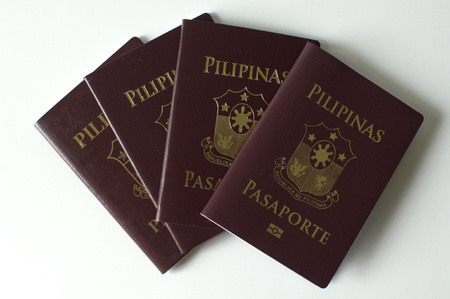
Philippine passports. INQUIRER.net STOCK IMAGE
MANILA, Philippines — Senator Francis Tolentino on Friday urged the Department of Foreign Affairs to print on Philippine passports a text reminding foreign entities that it is a property of the Philippine government and may not be confiscated.
During the hearing of the Senate committee on foreign relations, Tolentino broached the idea of printing text in passports as an additional layer of protection for overseas Filipino workers (OFWs) whose passports were often confiscated by their employers, especially in some countries in the Middle East.
“This passport is the property of the Republic of the Philippines. Puwede nating idagdag (We can add that), while valid, this passport must not be confiscated by private employers and must be surrendered upon demand by an authorized representative of the Philippine government,” Tolentino said.
“We can make it explicit in our passports para ‘yun pa lang employer nila, mabasa nila, ‘bawal pala namin i-confiscate ito,” Tolentino said.
But while implementation of the prohibition in a foreign country may be easier said than done, Tolentino said that the DFA can officially communicate the note during bilateral exchanges with countries which would be hosting OFWs.
DFA Office of Consular Affairs Executive Director Maria Alnee Gamble said that OFWs are urged to report to the Philippine consulate and embassies in their respective countries if anyone “attempts or deprives them of their passports.”
“With that, we can also have additional recommendations to the Department of Labor and Employment and with Philippine Overseas Employment Administration na ‘itong employer na ito has taken the passport of his Filipino domestic helper, we recommend that he be blacklisted,’” Gamble said.
Data from the Philippine Overseas Labor Offices (POLOs) which was presented before the Senate Labor Committee in March this year showed that nearly 5,000 cases of maltreatment of OFWs were recorded in 2020, majority of which were in Middle East, which has been following the kafala system.
Under the kafala system, a migrant worker’s immigration status is legally bound to an individual employer or sponsor (“kafeel”) during the contract period. The migrant worker cannot enter the country, transfer employment nor leave the country for any reason without first obtaining explicit written permission from the kafeel.
The chairperson of the committee, Senator Joel Villanueva, said passport confiscation remains to be an issue faced by many OFWs.